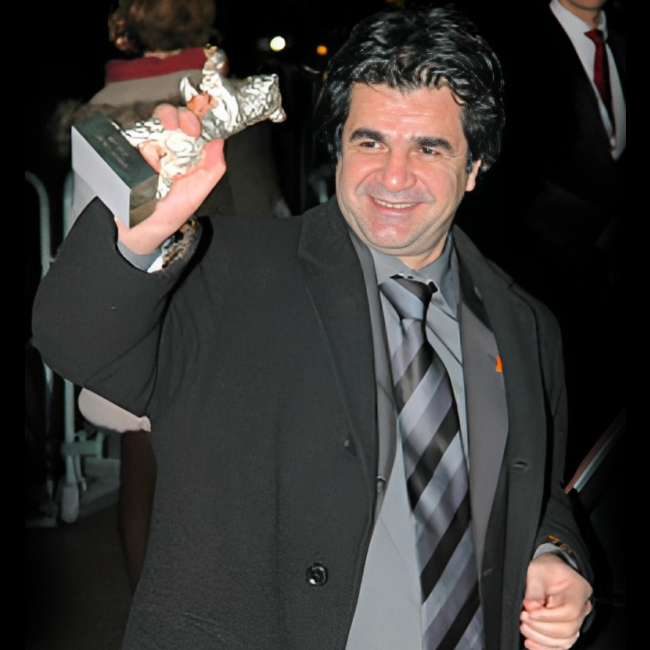

Jafar Panahi (July 11,1960) is a film director, screenwriter, and film editor. He became internationally recognized with his debut feature film Bādkunak-i Sifīd (The White Balloon, 1995), following years of making short films and serving as an assistant director to Abbas Kiarostami. Working as Abbas Kiarostami’s assistant director on the film Zīr-i dirakhtān-i zaytūn (Through the Olive Trees; 1994) enabled him to step into professional cinema as a director. Bādkunak-i Sifīd won the Caméra d’Or at the 1995 Cannes Film Festival, marking the first major award won by an Iranian film at Cannes. While Panahi’s films have received international acclaim and won many awards, including the Golden Leopard (Locarno), the Golden Bear (Berlin) and the Golden Lion (Venice), they’ve been banned in Iran due to their critical content addressing present socio-political issues. In 2010, Panahi was arrested and sentenced to six years in prison, though he was conditionally released after a few months. He continued to make films, including In Film Nist (This Is Not a Film, 2011), which was smuggled out of the country and screened at the Cannes Film Festival. In 2018, he won the Cannes Film Festival Award for the Best Screenplay for Si rukh (3 Faces, 2018).
Panahi’s films, often dubbed Iranian neorealism, confront social and political issues in Iran. His distinct style combines documentary realism with formal constraints, all the while openly criticizing the government. Using amateur actors and long takes, his works vividly capture the struggles of children, the impoverished, and women.
